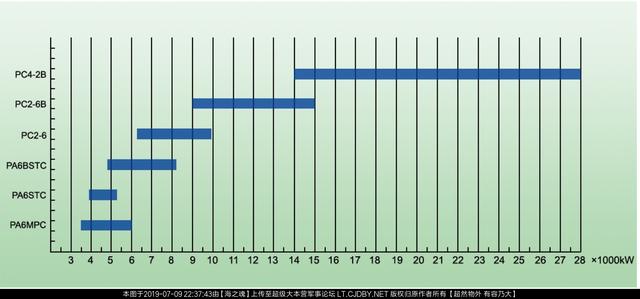有这样一群人,他们没有睡眠障碍且清楚晚睡对身体的危害,但却依然选择熬夜,这些人被称为“报复性睡前拖延症” (Revenge bedtime procrastination) “患者”。
近日,中国睡眠研究会发布的一份睡眠调查报告显示,当下我国有超3亿人存在睡眠障碍,其中有超过3/4的人在晚上11点以后入睡,而近1/3的人要熬到凌晨1点以后才能入睡。
你知道长期睡眠不足会有怎样的不良后果吗?

长期睡眠不足影响身心健康
研究显示,长期睡眠不足会对人的记忆力、身体健康等产生一定的影响。
Insufficient sleep degrades thinking, memory, and decision-making. Sleep deprivation also raises the risk of daytime sleepiness, which can harm productivity and academic achievement while heightening the risks of drowsy driving.睡眠不足会降低思考、记忆和决策能力。睡眠不足还会增加白天犯困的风险,这会影响工作效率和学习成绩,同时也会增加疲劳驾驶的风险。
A lack of sleep is tied to irritability and other difficulties regulating emotions. It’s also been connected to mental health disorders, such as depression and anxiety.睡眠不足还与易怒和其他调节情绪的困难有关。它还与精神健康障碍有关,比如抑郁和焦虑。
Sleep deprivation worsens physical health, making people more susceptible to cardiovascular problems and metabolic disorders, like diabetes. In addition, insufficient sleep can erode immune function.睡眠不足会恶化身体健康,使人们更容易患上心血管疾病和代谢紊乱,如糖尿病。此外,睡眠不足会削弱免疫功能。

Photo by Александар Цветановић from Pexels
什么是“报复性睡前拖延症”
与被失眠问题困扰着的人们相反,有“报复性睡前拖延症”的人明知晚睡对身体的危害且没有睡眠障碍,却依然选择熬夜。
The concept of sleep procrastination was introduced in a 2014 study by Utrecht University in The Netherlands, which defined it as “failing to go to bed at the intended time, while no external circumstances prevent a person from doing so”.荷兰乌得勒支大学在2014年的一项研究中引入了睡眠拖延的概念,该研究将其定义为“未能在预定时间上床睡觉,并且未受外部环境阻止”。
The term “revenge” adds a deeper psychological layer to the definition, hinting at the act as being a form of rebellion, whereby people delay sleep with the sole intention of creating more time for themselves where they have control.“报复”一词为该定义增添了更深层次的心理色彩,暗示这种行为是一种反叛,人们延迟睡眠的唯一目的是在他们可以控制的情况下为自己创造更多时间。
什么导致了“报复性睡前拖延症”
研究表明,“报复性睡前拖延症”与一个人白天的工作生活有关。
人们在工作时会产生一种被支配感,时间是不自由的,心理上是紧张急迫的。如果再加班的话,剩余的放松时间更是少之又少。而人们在内心往往会追求工作与放松的平衡,这时睡觉在很多人眼中被视为占据自由时间的行为。
In the case of “revenge bedtime procrastination”, they feel out of control in their day life and the night is when they can assert their control,” says Dr Saliha Afridi, clinical psychologist. “They do not feel engaged or enlivened in their day because it is full of things they ‘have to do’ rather than what they ‘want to do’.”临床心理学家Saliha Afridi博士说:“在‘报复性睡前拖延症’的情况下,他们觉得白天的生活失去了控制,而到了晚上他们就可以做到自己控制了。”
人们将下班后睡着前这一段时间看作是可以自己支配,自主安排的宝贵时光:锻炼,看书,追剧,观影——“这才是生活”。
还有很多专家认为有“报复性睡前拖延症”的人不断增多也与去年一年的新冠疫情有关。
Revenge bedtime procrastination may also be on the rise because of COVID-19 and stress associated with stay-at-home orders. Surveys have found that working from home has often extended working hours, and the normal leisure time was reduced. These factors may trigger stress and sleep procrastination.
由于新冠疫情和居家隔离带来的焦虑,报复性的就寝拖延症可能也在增加。调查发现,在家工作往往延长了工作时间,正常休闲时间减少了。这些因素可能会引发压力和睡眠拖延。
“Many people lost much of their routine last year,” continues Afridi. At the same time, people were struggling with difficult emotions, anxiety, loneliness and depression, so they were anesthetized by using social media and Netflix.阿夫里迪说:“去年,许多人的正常作息被打乱。” 与此同时,人们在艰难的情绪、焦虑、孤独和抑郁中挣扎,所以他们被社交媒体和网飞麻醉。
如何改善“报复性睡前拖延症”
虽然“报复性睡前拖延症”看上去微不足道,但长期下来这一行为自然会对我们的睡眠产生影响。
改善“报复性睡前拖延症”,可以试着制定规律的作息时间(Keeping a consistent bedtime and wake-up time),在睡前避免使用电子设备(electronic devices),亦或是将睡前时间安排为读书(reading)、冥想 (meditating)、拉伸(stretching)等有助于神经放松的活动。
放松虽好,还是尽量早点睡呀。

编辑:陈月华
实习编辑:李金昳
实习生:王丽冬
来源:澎湃新闻 Sleep Founfation The National
来源:中国日报双语新闻
,




